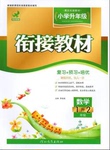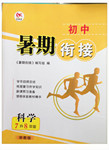题目内容
任务型阅读
Mona Smith is our English teacher. We don't know how old she is. We only know her birthday is on March 6th. She is a nice woman. We don't call her Miss Smith. We call her Mona.
Her class is very interesting. She speaks English very well. She lets us only speak English in class. After class she always plays sports with us. Her favorite sport is basketball. She plays it very well. She always says, “Do you want to be healthy? Then play basketball. ” She buys some food for us, too, like(像) ice?creams, apples and bananas. She is our good friend.
1.What do Miss Smith's students call her?
_________________________________________________________________
2.When is Miss Smith's birthday?
_________________________________________________________________
3.What does Miss Smith ask her students to do in class?
_________________________________________________________________
4.What does Miss Smith always do with her students after class?
_________________________________________________________________
5.What is Miss Smith's favorite(最喜欢的) sport?
_________________________________________________________________
 鹰派教辅衔接教材河北教育出版社系列答案
鹰派教辅衔接教材河北教育出版社系列答案 初中暑期衔接系列答案
初中暑期衔接系列答案

